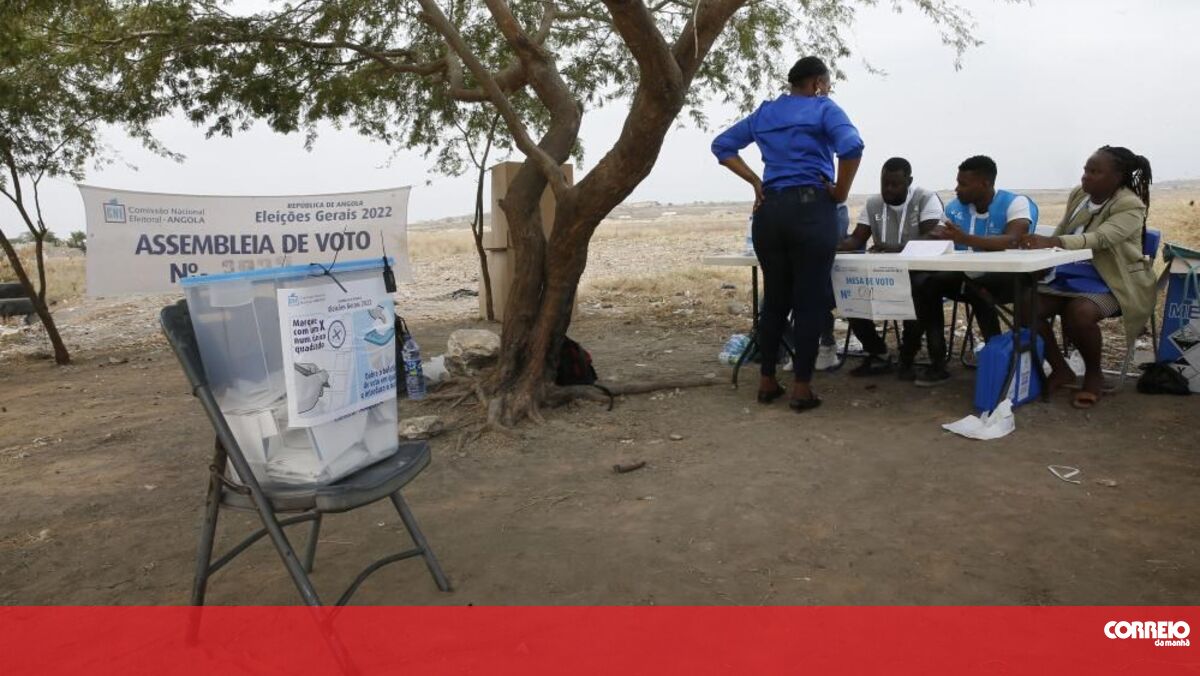Dirt roads, lack of access, problems with registration and complete ignorance of procedures are the problems of the general elections that will be held this Wednesday in Angola outside major urban centers.
“There are almost as many people who can’t vote as there are who vote,” says a polling participant in Duapandul after another voter mistakenly tried to vote at the table under a tree.
Shortly before, a woman living in the community wanted to vote, but her registration was still in Biya, 720 kilometers away. “To vote today, you don’t even have to fly,” jokes another polling station participant.
The elderly woman shrugs her shoulders and leaves, accompanied by her daughter, who is about to vote elsewhere. She has lived in the area for 12 years, came from the south and never updated her address.
In Duapandul, in the middle of a dirt road in the hinterland of Bengo province, north of Luanda, there are 13 delegates and four members of the polling station, and they voted only at 14:00 under a wide tree that covers the ballot box, 152 voters out of 288 registered.
“We are more delegates [partidários] than the voters,” says the representative of the Broad Rapprochement for the Salvation of Angola, Electoral Coalition (CASA-CE), with a smile.
Emanuel Pires, the precinct president, agrees. “Parties have redoubled their efforts and are getting tougher, with more people. Thirteen delegates is a lot.”
Lined up next to the table are inspectors with two representatives from five sides, contrary to what is established by the regulations, which require only one of the elements, acting or replacing. But in Duapandul, they are all under the canopy of a tree that the locals call “Pau de Picos”.
A few kilometers away, in Sarikos, a fishing village, Leopoldina Panga, chairman of the 2856 assembly, says few problems have been reported. The assembly has posted the lists at the door of the school because it has not received computers from the National Electoral Commission and few are still eager to vote late in the morning.
But that’s not the case for Bernardo, 23, who wants to vote for the first time and can’t. He arrived at the Sarikos school, and his polling station is two hours away. “I won’t ride again, I don’t have a bike. I’m going to refuse to surrender,” says a disheartened Bernardo in a faded Borussia Dortmund jersey.
More insistent is António Miguel in Duapandula. He has already paid 600 kwanza (1.5 euros) for a motorcycle taxi to find his polling place. “He is not there yet, it is still far away. I have to vote, this is a duty and responsibility,” he says, ending with a pause, as if dictating to the journalist the importance of this Wednesday.
Duapandula means “thank you” in their native Umbundu language, and Missena Azul, 30, is also grateful for the voice she was able to exercise.
“I have already arrived from Pangila, far away. But I came by car, drove down, down, until I found my place and ended up here,” says Missena Azul, dressed in blue. Previously, when faced with someone who wanted to photograph her during the voting, she was uncomfortable.
“Not without my wig. Not without him.” And the plenum at the table agreed that she interrupted the vote to go to the car to braid her long hair into black braids.
Author: Lusa
Source: CM Jornal
Jane Stock is a technology author, who has written for 24 Hours World. She writes about the latest in technology news and trends, and is always on the lookout for new and innovative ways to improve his audience’s experience.




